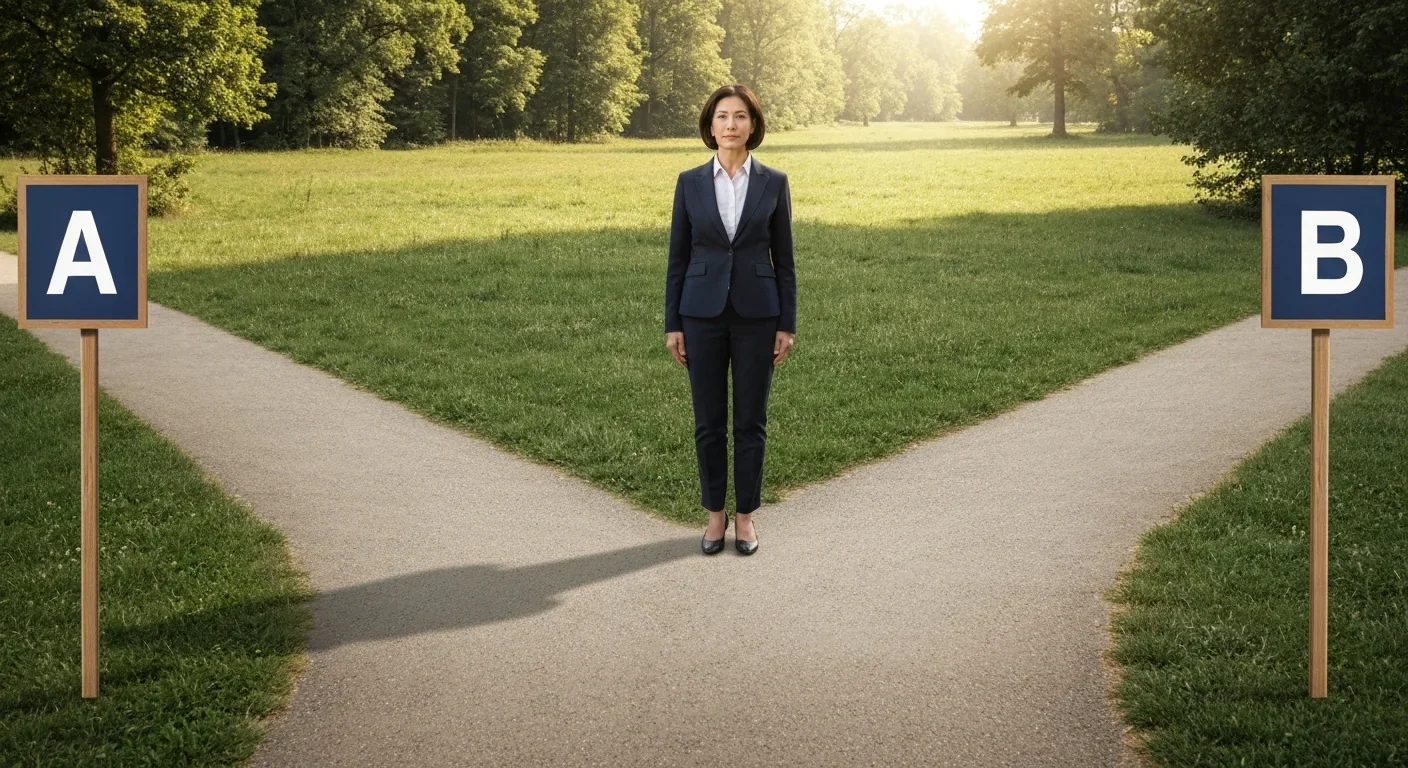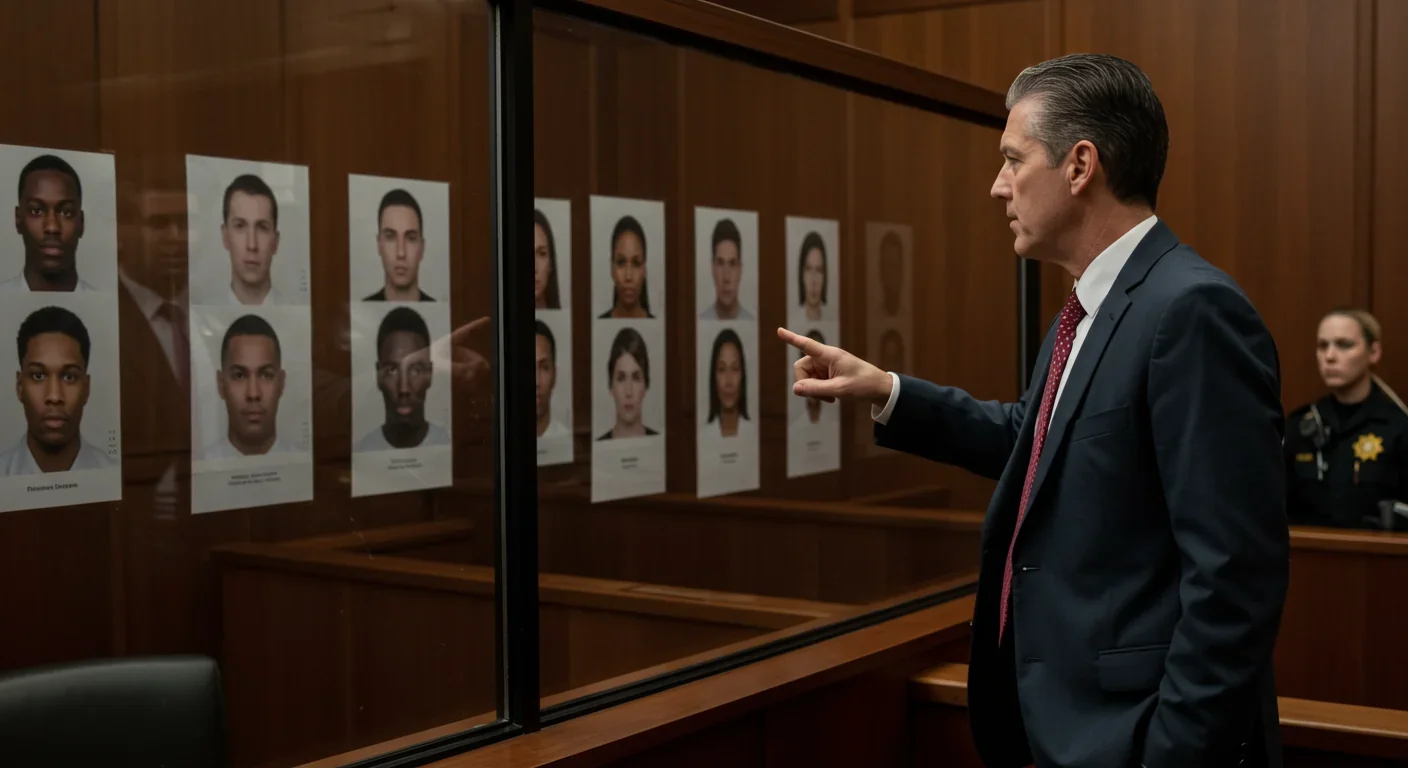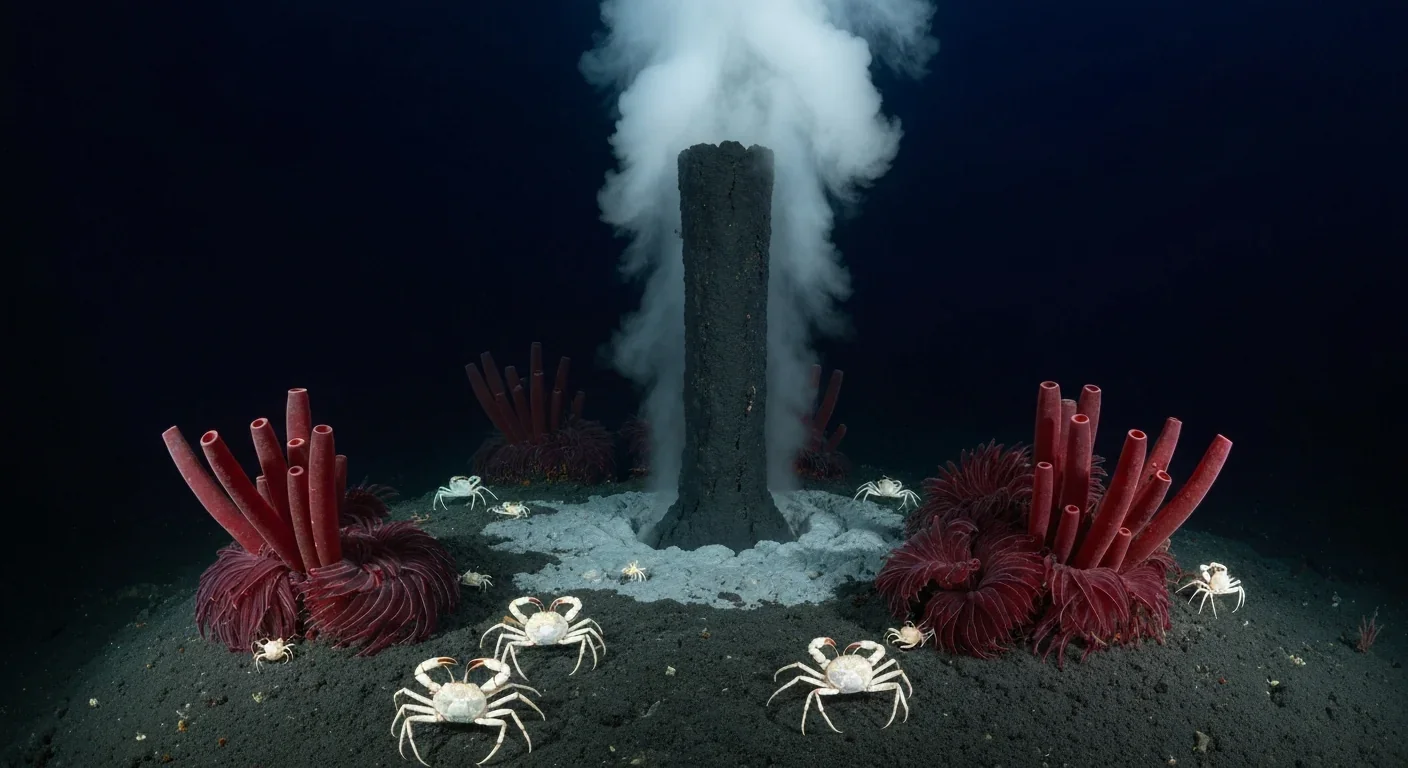Why We Pick Sides Over Nothing: Instant Tribalism Science

TL;DR: Scientists have proven that memories are reconstructed each time we recall them, making them vulnerable to distortion. Simple word choices, suggestions, and time can insert false details that feel completely real, with serious implications for justice, therapy, and everyday life.

Your brain is lying to you right now. Not about big things, necessarily, but about small details you'd swear are true. That fight you had with your partner last week? You probably remember who started it wrong. The childhood birthday party you can picture so clearly? Half those details never happened. Memory feels like a video recording, but it's actually more like a Wikipedia page that anyone can edit, including you.
Scientists have spent decades figuring out exactly how our brains rewrite history, and the findings are both fascinating and unsettling. False memories aren't rare glitches, they're a fundamental feature of how memory works. Understanding this matters because our entire legal system, our relationships, and even our sense of identity depend on memories that might be fiction.
In 1974, psychologists Elizabeth Loftus and John Palmer showed college students videos of car accidents. Simple enough. But here's where it got interesting: they asked half the students, "About how fast were the cars going when they hit each other?" The other half got a slightly different question: "About how fast were the cars going when they smashed into each other?"
That single word made all the difference. Students who heard "smashed" estimated speeds about 7 mph higher than those who heard "hit." But the real kicker came a week later. When asked if they'd seen broken glass in the video, those in the "smashed" group were 2.3 times more likely to say yes, even though there was no broken glass at all.
This wasn't about people lying or trying to please the researchers. They genuinely remembered seeing glass that never existed. One carefully chosen word had rewritten their memories, inserting a vivid detail that felt as real as anything they'd actually witnessed.
The implications were staggering. If a single word could manufacture a memory, what else could slip into our mental record without us noticing?
To understand how false memories happen, you need to know something uncomfortable: memory doesn't work the way you think it does. When you remember something, you're not pulling up a file from storage. You're reconstructing the event from fragments, and every time you do this, you have a chance to change it.
Think of memory like this: your brain stores bits and pieces - a smell, an emotion, a visual snapshot, someone's tone of voice. When you recall an event, your brain assembles these fragments into a coherent story, filling in gaps with what should have been there based on your expectations and knowledge.
This reconstructive process is normally helpful. It lets you remember the gist of things without wasting mental energy on every detail. But it also makes memory vulnerable to contamination. New information can slip in during reconstruction, and once it's in there, your brain treats it like it was always part of the original experience.
Researchers have identified several ways false memories form:
The Misinformation Effect: Post-event information alters your memory of the original event. In one study, participants who saw a car at a stop sign but were later asked about a yield sign were only 41% accurate at identifying the correct sign later, compared to 75% accuracy when given accurate information.
Source Confusion: You remember information correctly but forget where it came from. That "personal memory" of your third birthday might actually be from a photograph you've seen many times.
The DRM Paradigm: Named after researchers Deese, Roediger, and McDermott, this shows how easily semantic associations create false memories. If you hear a list of related words like "bed, rest, awake, tired, dream," you'll later "remember" hearing the word "sleep," even though it was never on the list. Even AI language models exhibit this effect, suggesting it's a fundamental feature of how associative memory systems work.
Social Pressure and Suggestion: When others claim to remember something, you're more likely to develop that memory yourself, even if you weren't originally sure about it.

Here's something that should worry everyone involved in the justice system: confident eyewitnesses are more likely to be believed. But confidence and accuracy aren't as tightly linked as we'd like to think.
In one large-scale study of 4,000 participants who witnessed a staged crime, researchers found something unexpected about the relationship between sleep, memory, and confidence. While high-confidence identifications were indeed more accurate, allowing witnesses to sleep didn't improve their accuracy at all, challenging assumptions about how memory consolidation works in forensically relevant situations.
The problem is that the feeling of remembering - that sense of clarity and certainty - can be just as strong for false memories as for real ones. Your brain generates the same conviction regardless of whether the memory is genuine. This makes it nearly impossible to distinguish true from false memories based on how they feel.
Studies have repeatedly shown that eyewitness confidence, while better than nothing, isn't the reliable indicator courts have historically treated it as. People can be absolutely certain about details that are completely wrong.
Perhaps nowhere has the false memory phenomenon caused more damage than in recovered memory therapy. In the 1980s and 1990s, some therapists believed they could help patients recover repressed memories of childhood trauma, particularly sexual abuse.
The problem? Many of these "recovered" memories were false. Suggestive therapeutic techniques, combined with the power dynamics between therapist and patient, created vivid memories of events that never occurred. Families were torn apart. People went to prison based on fabricated accusations.
A 2021 study raised serious questions about whether repressed memories even exist in the form originally theorized. While people certainly forget traumatic events through normal forgetting processes, the idea that the mind automatically "represses" abuse and that these memories can be reliably retrieved through therapy has been largely discredited.
This doesn't mean all recovered memories are false, but it highlights how certain therapeutic techniques can inadvertently manufacture memories rather than uncover them. The damage from false accusations based on implanted memories led to significant reforms in how therapy and legal proceedings handle such cases.
If you thought false memories were concerning before the internet, you haven't seen anything yet. Social media, photo editing, and AI-generated content are creating an environment where false memories can spread faster and feel more real than ever.
Recent research by Loftus and MIT scientists shows that AI can manipulate what we remember, even when we know we're looking at AI-generated images and text. The technology amplifies our natural vulnerability to suggestion.
Think about how social media works: you experience an event, then you see dozens or hundreds of posts about it from different angles. Photos get shared, memes get created, commentary piles up. Each exposure is another chance for details to shift and blend together. What you eventually "remember" might be a mashery of the original event, other people's accounts, and stuff you saw online afterward.
Deepfakes and sophisticated photo manipulation add another layer. In controlled studies, showing people manipulated photos of events they attended significantly increased false memories of things that didn't happen. When the fabricated evidence looks this real, your brain has an even harder time distinguishing true from false.
The implications for everything from personal disputes to political discourse are staggering. If we're this vulnerable to false memories under normal conditions, what happens when bad actors deliberately try to manipulate our recollections of events?
The legal system has slowly adapted to what science knows about memory, though not nearly fast enough for many wrongly convicted people.
DNA evidence has exonerated hundreds of people who were convicted based primarily on eyewitness testimony. In the majority of these cases, the witnesses weren't lying - they genuinely believed their memories were accurate. Studies like Loftus and Palmer's work have shown just how easily leading questions during police interviews can contaminate witness memories.
Some jurisdictions have reformed how they conduct lineups and witness interviews:
- Using "double-blind" procedures where the officer administering the lineup doesn't know who the suspect is, preventing inadvertent cues
- Recording witness confidence immediately, before it can be influenced by feedback
- Avoiding leading or suggestive questions
- Warning jurors about the limitations of eyewitness memory
But many courts still allow testimony that scientists would consider highly unreliable. The gap between what researchers know about memory and how the legal system treats it remains dangerously wide.
Legal professionals increasingly recognize that they need protocols to minimize memory contamination. This means careful interview techniques, avoiding repeated questioning that can reinforce false details, and educating juries about memory's malleability.

Be skeptical of your own certainty. That confident feeling isn't proof your memory is accurate. The more time has passed since an event, the more likely your memory has been reconstructed and potentially altered.
Write things down soon after they happen. Contemporary notes are far more reliable than later recollections. If something important happens, create a detailed record while it's fresh.
Watch out for leading questions. If someone asks, "Wasn't the car going really fast?" they're potentially contaminating your memory. Try to recall details before others add their interpretation.
Be careful about repeated storytelling. Each time you tell a story about an event, you're more likely to remember the story rather than the event itself. Details can drift with each retelling.
Question "recovered" memories. If you suddenly remember something significant that you had no recollection of before, especially after therapy or suggestive conversations, approach it with caution. Genuine forgotten memories do surface sometimes, but so do false ones.
Recognize that emotion doesn't equal accuracy. Memories tied to strong emotions feel more vivid and real, but research shows they're just as vulnerable to distortion as mundane memories.
Corroborate important memories with evidence. If a memory matters, see if you can verify it with photos, documents, or other people's independent accounts.
False memories aren't just a curiosity for psychology students. They affect nearly every aspect of life that relies on accurate recollection.
In relationships, arguments often hinge on differing memories of what was said or done. Understanding that both people can genuinely remember different versions of the same event - and both might be wrong - can reduce conflict and increase empathy.
In professional settings, performance reviews, harassment claims, and business disputes all depend on people's recollections. Knowing memory's limitations encourages better documentation practices.
For individuals, false memories can literally change your understanding of your own past and identity. That family story you've heard a hundred times might be partially fiction, but it still shapes how you see yourself.
The research on false memories isn't just about catching mistakes. It's about recognizing a fundamental aspect of human cognition that we need to account for in how we design systems and make decisions. Courts need better protocols. Therapists need better training. And all of us need more humility about what we think we remember.
Scientists continue exploring how false memories form and whether we can better distinguish them from accurate ones. Brain imaging studies are identifying neural signatures that might differentiate true from false memories, though this technology isn't yet reliable enough for courtroom use.
Researchers are also investigating individual differences: why some people seem more susceptible to false memories than others. Factors like imagination, absorption in experiences, and certain thinking styles correlate with higher rates of false memory formation.
There's also growing interest in how technology might help. Apps that prompt detailed recording of events could create more reliable personal archives than memory alone. But these same technologies could be used to manipulate memories more effectively, creating an arms race between protection and exploitation.
The neuroscience of memory continues revealing surprising details. We now know that every time you recall a memory, it becomes temporarily unstable and can be altered before being stored again. This process, called reconsolidation, might eventually enable treatments for PTSD and other conditions where problematic memories cause suffering - but it also underscores just how fluid memory really is.
Accepting that your memory is fallible doesn't mean you can't trust anything you recall. Most memories are accurate enough for daily life. You remember how to get home, who your friends are, and the general shape of your past. The problems arise when we treat memory as perfect and immutable, especially in high-stakes situations.
The science of false memories teaches humility. That argument where you're absolutely certain you're right about what happened? Maybe you are. Or maybe both of you have reconstructed the event in ways that support your current feelings. The criminal testimony you're so confident about? It might be accurate, or it might have been quietly rewritten by the questions you were asked afterward.
This doesn't mean we throw up our hands and say nothing can be known. It means we build better systems that account for memory's limitations. We corroborate. We document. We question our certainty. And we recognize that being wrong about what we remember doesn't make us liars - it makes us human.
Your brain is doing the best it can with an impossible task: reconstructing the past from fragments while dealing with incomplete information and constant interference. The fact that it works as well as it does is remarkable. But understanding its limitations - how easily memory can be rewritten, how confidence doesn't equal accuracy, how suggestion and emotion can manufacture vivid details that never existed - is essential for navigating a world where the truth matters.
The next time you're absolutely certain you remember something correctly, pause for a moment. Ask yourself: am I remembering the event, or am I remembering the last time I remembered it? The answer might surprise you.

Ahuna Mons on dwarf planet Ceres is the solar system's only confirmed cryovolcano in the asteroid belt - a mountain made of ice and salt that erupted relatively recently. The discovery reveals that small worlds can retain subsurface oceans and geological activity far longer than expected, expanding the range of potentially habitable environments in our solar system.

Scientists discovered 24-hour protein rhythms in cells without DNA, revealing an ancient timekeeping mechanism that predates gene-based clocks by billions of years and exists across all life.

3D-printed coral reefs are being engineered with precise surface textures, material chemistry, and geometric complexity to optimize coral larvae settlement. While early projects show promise - with some designs achieving 80x higher settlement rates - scalability, cost, and the overriding challenge of climate change remain critical obstacles.

The minimal group paradigm shows humans discriminate based on meaningless group labels - like coin flips or shirt colors - revealing that tribalism is hardwired into our brains. Understanding this automatic bias is the first step toward managing it.

In 1977, scientists discovered thriving ecosystems around underwater volcanic vents powered by chemistry, not sunlight. These alien worlds host bizarre creatures and heat-loving microbes, revolutionizing our understanding of where life can exist on Earth and beyond.

Automated systems in housing - mortgage lending, tenant screening, appraisals, and insurance - systematically discriminate against communities of color by using proxy variables like ZIP codes and credit scores that encode historical racism. While the Fair Housing Act outlawed explicit redlining decades ago, machine learning models trained on biased data reproduce the same patterns at scale. Solutions exist - algorithmic auditing, fairness-aware design, regulatory reform - but require prioritizing equ...

Cache coherence protocols like MESI and MOESI coordinate billions of operations per second to ensure data consistency across multi-core processors. Understanding these invisible hardware mechanisms helps developers write faster parallel code and avoid performance pitfalls.